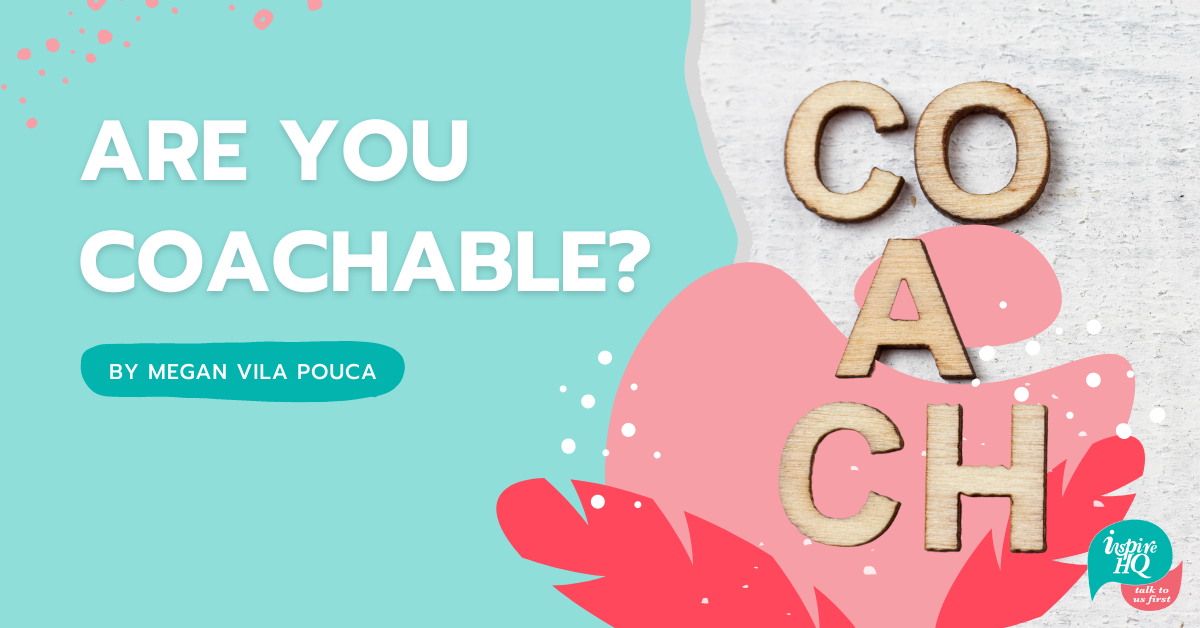In today’s market, we are flooded with information about candidate shortages and the impact that COVID has had on skilled talent. This is impacting every industry and at every level. As an employer, attempting to recruit in the current market can be challenging, time-consuming and sometimes put in the “too hard” basket. As I discussed in my last blog, cultural fit is taking precedence over skillset, with many employers being more open than ever to considering applicants whose skill set and previous experience may not be an exact match for the role they are trying to fill.
What does this mean for the job seeker? In many ways, it can be the perfect time to be looking for work. If you’re looking to take the next step in your career, it is important to have some relevant previous experience for the role you’re applying for. It is also important to be able to demonstrate how coachable you are. Coachability is your ability to learn a new skill as well as your willingness to take on feedback, learn from it and strive for continuous improvement.
Consider an elite athlete and the number of hours they spend training and finessing their skills. A perfect example that sticks in my mind is from the 2020 Olympics earlier this year, watching Cate Campbell bring home the gold on the final day of swimming in the Women’s 4 x 100m medley relay final. What was described as a near-perfect changeover with a reaction time of just 0.04 seconds proved to be the difference as Australia held off the USA team by 0.13 of a second. As an avid sports fan, this was a goosebumps moment! As an elite athlete, the endless hours of training techniques, perfecting changeovers, and race strategies relied on Cate (and the entire relay team) being coachable. Their ability to take direction, receive feedback and use it to further refine their skills, combined with their commitment and dedication to perfecting their craft; is coachability.
There are many parallels between athletes and professional development. Being coachable will differentiate you from other applicants and will give you a competitive edge in the recruitment process. Some key questions that may be asked of you throughout an interview process to identify your coachability may include:
-
- Can you tell me about a time that you were given feedback? What did you do with this feedback and what was the result?
What an employer is looking for in your response is your willingness to take on feedback and the action you took once you received this feedback. It is very common in an interview for a job seeker to respond to this type of question with “I’m happy to receive feedback” or “I take feedback onboard”. To be coachable, you will also be able to demonstrate what changes/improvements you made to your work habits to improve in this area.
-
- Describe a time when you made a mistake at work and had to tell someone about it. What did you learn from your mistake, and how did you fix it?
What the employer is looking for in your response is your willingness to acknowledge when you’ve made a mistake and how you took responsibility to minimize this happening again. To be coachable, you need to be able to take accountability for your actions, be willing to own your mistakes and improve.
-
- Describe an area of your professional life where you’ve identified a need for improvement and how you’ve tried to improve?
This question is focusing on your self-awareness of your skills as well as opportunities that you’ve identified that are areas of improvement. To be coachable, you will be a curious learner who is always striving to improve.
-
- Think about the last time you required assistance at work. What did you need help with, and why did you decide to ask for help?
What an employer is looking for in this question is your ability to exercise judgement and use your initiative to identify when you need to reach out and ask for help. To be coachable, you need to be able to assess and use your judgement and in this example, knowing the appropriate time to ask for help in order to meet the expectations/deadlines of your role.
If you are actively looking for work (and applying for roles that may be a further stretch for your current skillset), take the time to prepare with some of these questions before your next interview to demonstrate your coachability. Consider some of the traits I have referred to and how you can implement and change your mindset to further improve on and enhance your skills. Attitude is everything and your willingness and openness to be coachable will ensure your own professional greatness can shine through!
Disclaimer: The material contained in this publication is of a general nature only. It is not, nor is intended to be, legal advice. If you wish to act based on the content of this publication, we recommend that you seek professional advice.

